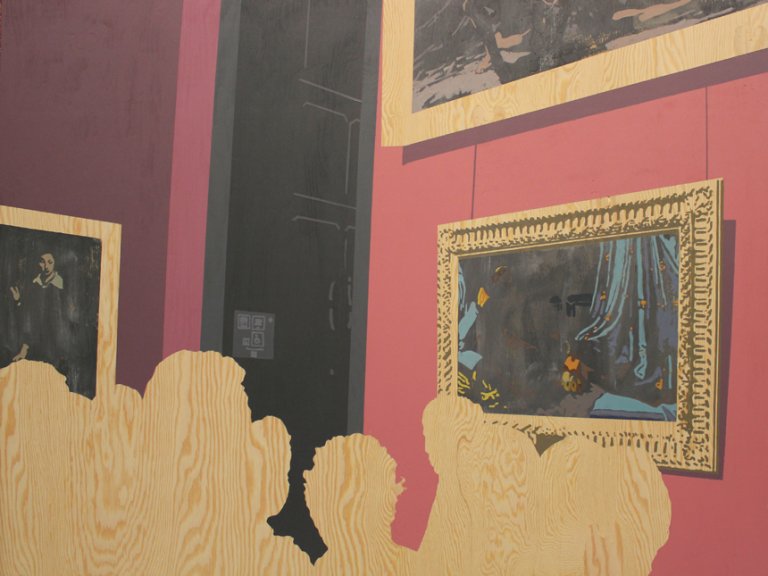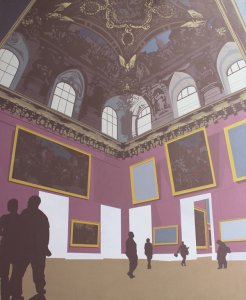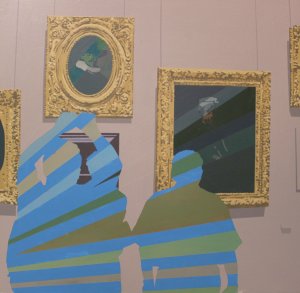
Philip Delisle: Fragmentum Opus

Philip Delisle’s works explore the process of painting. This statement could be applied to many contemporary and historic paintings. Whether drawing attention to the materiality of paint and canvas; to the activity of the painter, whether intellectual, psychological, or physical; to the identity of the artist; the process of painting has been a ubiquitous though ever-changing subject of the medium. With the series Fragmentum Opus, however, process seems above all to refer to painting’s mobile and increasingly fragmented position in a broad network of distribution and exchange.
Following upon the success of a series of works made during his time as an MFA student at NSCAD University that explored the movement between studio (individually focused action and thought), exhibition (display, arrangement, viewing), and discourse (the works were accompanied by a book containing fictional theories around painting), Philip Delisle has with this new series made visible a web of connections with the medium’s past.
What is in these paintings are all the places where a painting goes, who sees it, and what it seems to be made of, in a layered relationship. Each layer has its own texture and consistency—some are openings that appear revelatory of another dimension, some abstract their content, some conceal other realms. By taking the great museums and the great works of the past as its primary subject matter, this playful layering takes on temporal connotations. Within this structure, even the most solidly established masterpieces are not immune to the most contemporary condition of endless circulation and translation.
Fragmentum Opus represents a current version of the Grand Tour of the 17th to 19th centuries when a young person of financial means was seen to acquire cultural maturity through exposure to the historical monuments and great works of Europe. As the recipient of the Joseph Plaskett Award, Delisle visited many of the continent’s major collections of art, ranging from the Kunsthistorisches Museum in Vienna to the Louvre in Paris. The paintings that resulted as a response to these travels focus on the spaces, the framing, the shades and tones of background walls, and the fellow tourists that mediate the contemporary experience of art history.
Delisle dissolves the challenge of what he refers to as the Magnum Opus (the great masterpiece and all the conditions that determine its identity as such) in a restrained and artificial palette that suggests industrial house paint even as it reflects the colours of the museum architecture, a wood panel’s grain, or the faded gold of a 19th century frame. Taking on some of the most famous works of art about art, even Vermeer’s portentously titled The Art of Painting, his works analyze the real layered conditions of the medium as it is experienced and circulated today, opening holes in the shadows of a weighty past and cutting through the cobwebs of the present.
Pan Wendt, curator

